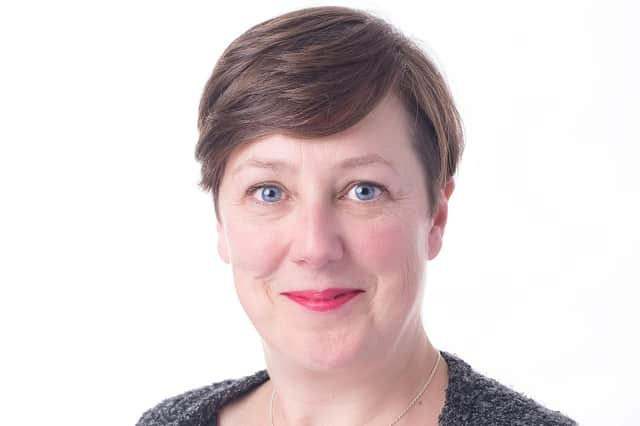Ditch the status quo and try a different approach to social care - Lucy Mulvagh


One of the consequences of Covid-19 has been greater public attention on social care. However, problems had been identified with the current system well before the pandemic, and there was widespread agreement that improvements were urgently needed. Because, despite its vital importance, social care was frequently overlooked and undervalued.
This is one reason why my organisation, the Health and Social Care Alliance Scotland (the ALLIANCE), welcomes and supports the independent review of adult social care led by Derek Feeley. The review has heard from people, communities and organisations with knowledge and experience of adult social care around Scotland, and is due to make its recommendations for improvements by January 2021.
Advertisement
Hide AdAdvertisement
Hide AdScotland’s approach to social care is called Self-directed Support (SDS), which guarantees people the right to exercise choice and control over their support. Recent research by the ALLIANCE and Self Directed Support Scotland demonstrates the value and benefit that SDS plays in the lives of people and their families. In ‘My Support My Choice’, we heard about the experiences of over 600 people, and most said that SDS improved their social care.
One person described SDS as, “the a la carte of the care system” and explained that, “with SDS I have control. I can choose what option I want, within the rules, of course. I find this is much more liberating, to have the ability to decide for yourself is liberating. So, it makes a big difference.” However, not everyone we heard from shared positive experiences, and there are recurrent problems with how SDS works – or doesn’t – for some. For example, several people said they do not get to exercise proper choice and control over their services, and some said they cannot get support that meets their needs, rights and preferences, causing distress and deterioration in their health and wellbeing. We’ve therefore made a number of recommendations about how to address people’s concerns, build on good practice, and increase the effectiveness and reach of quality SDS.
If properly applied, SDS could be the cornerstone of a world leading, human rights based model of social care. We could use human rights to create a social care system that is fairer, sustainable, transparent and accountable; that delivers acceptable and timely services to everyone; and that values, listens to and empowers service users, care workers and unpaid carers alike.
Human rights aren’t just lofty, theoretical aspirations; they can be used in a practical way to help realise the true purpose and value of social care and develop a system that is firmly cemented in Scottish culture as a positive investment in its people, society and economy. Interrupted by Covid-19, the Scottish Government’s reform of adult social care programme had started to advance this agenda.
With the prospect of ever-shrinking resources and a post-pandemic recession, it is not realistic to expect good quality, equitable social care for all by continuing with the status quo. It’s time for a different approach.
Read the research report, ‘My Support My Choice: People’s Experiences of Self-directed Support and Social Care in Scotland’ at https://bit.ly/3j9sCnf
Lucy Mulvagh, Director of Policy and Communications, Health and Social Care Alliance Scotland
Comments
Want to join the conversation? Please or to comment on this article.